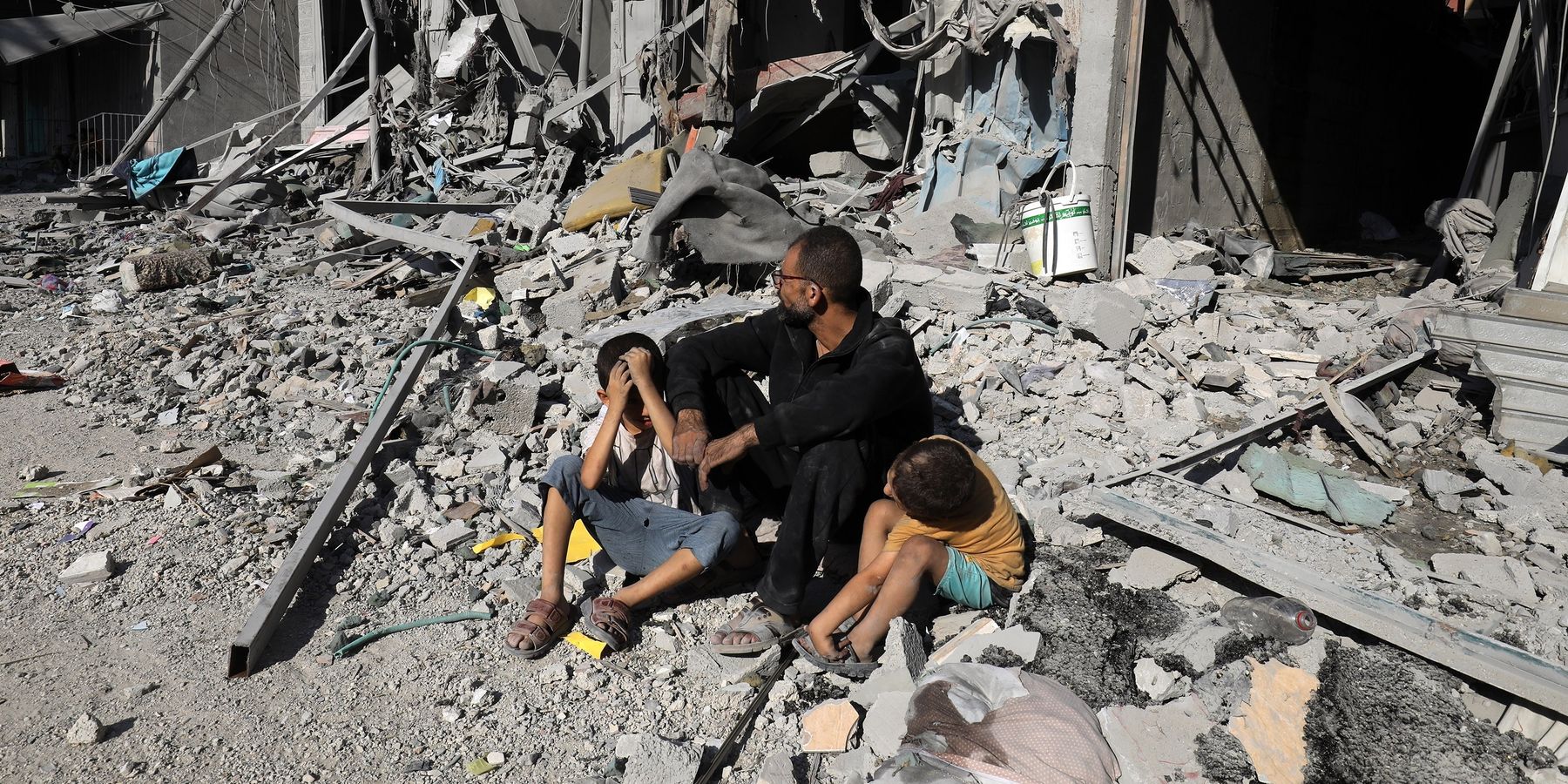More than 1200 political scientists, including some of the field’s most prominent voices, are calling on President Joe Biden and other U.S. politicians to push for an “immediate ceasefire” in Gaza and an end to the Israeli blockade of the besieged strip.
“Only immediate ceasefire and provision of aid are adequate to prevent enormous further loss of civilian life,” they argued in an open letter, noting that the conflict risks sparking a wider war in the region. “Continuation of the conflict also endangers the hostages whose safe return depends on a deescalation of hostilities.”
“As Israel's longtime patron and chief ally, the United States has both a special responsibility for this crisis and a special influence upon it,” the letter continues. “The U.S. response to the Gaza war thus far has badly damaged its credibility and moral authority, giving rise to reasonable suspicions of U.S. proclamations about a ‘rules-based international order.’”
The signatories, which also include leading scholars of Middle East politics, join a growing list of academic and professional groups that have called for a ceasefire and argued that continued fighting will further deepen the humanitarian crisis in Gaza, where at least 13,000 people have been killed and an additional 1.7 million displaced over the past month.
While polls show that a supermajority of Americans support a ceasefire, U.S. politicians have largely refused to advocate for a sustained break in hostilities, which President Joe Biden and many in Congress claim would play into Hamas’s hands. “To Hamas’s members, every cease-fire is time they exploit to rebuild their stockpile of rockets, reposition fighters and restart the killing by attacking innocents again,” Biden argued in a recent op-ed for the Washington Post.
The pro-ceasefire effort, which also condemns Hamas’s actions, echoes a 2002 open letter in which leading political scientists urged then-President George W. Bush to stop the march toward the U.S. invasion of Iraq. In fact, the two letters share some signatories, including University of Chicago Professor John Mearsheimer and Harvard University Professor Stephen Walt, both of whom are non-resident fellows at the Quincy Institute, which publishes Responsible Statecraft.
Other notable signers of the ceasefire letter include Margaret Levi, Jane Mansbridge, Lisa Martin, Rogers Smith, and Carol Pateman, all of whom previously served as president of the American Political Science Association, the field’s leading professional group. Prominent scholars of non-state movements and peacekeeping — including James C. Scott, Page Fortna, and Melani Cammett — also endorsed the petition.
This broad support from the political science community stems in part from the letter’s carefully chosen wording, argues Lisa Wedeen, a professor at the University of Chicago who helped organize the petition. Wedeen told RS that the final language came a long way from the first draft, which was proposed by junior faculty and staked out a position that was unlikely to draw support from a wide swathe of political scientists.
“It had the advantage of offering a big tent perspective that could allow important scholars with disparate views to call resoundingly for a ceasefire,” Wedeen said, adding that she is grateful to junior colleagues who agreed to tone down the language in order to build a broader coalition.
Notably, the final letter says its signers “may differ about the precise outlines” of a resolution for the conflict but argues that “the crisis facing Gaza is so dire as to demand that we set aside for now any underlying disagreements about the broader conflict and register the urgent need for ceasefire and humanitarian aid.”
Wedeen says the letter has created an opportunity for the broader political science community to have conversations about the conflict and engage with its potential consequences. She has succeeded in persuading some colleagues to sign the letter by pointing out the “wishful thinking” of Israel’s strongest backers, whose goal of completely eradicating Hamas harkens back to the U.S. “war on terror,” a strategy that largely backfired against American interests.
Some who refused to sign the letter argued that a “humanitarian pause” would be more appropriate than a ceasefire, while others claimed that Israel’s campaign, however brutal it may be, is necessary in order to guarantee the safety of Israelis, according to Wedeen.
Wedeen is pragmatic about the odds that the letter will have an impact on U.S. policy but hopeful that the initiative will bolster pro-peace efforts by “registering a kind of outrage and inducing political solidarity among other political scientists” as well as signaling to people in the Middle East that American scholars are also “outraged” at what she views as “a disproportionate response that is just ethically, unspeakably awful.”
- Biden refuses to talk 'ceasefire' though it could prevent a regional war ›
- Poll: Majority of Americans support ceasefire in Gaza ›
- Over 70% of Democrats support a ceasefire in Gaza: Poll - Responsible Statecraft ›
















